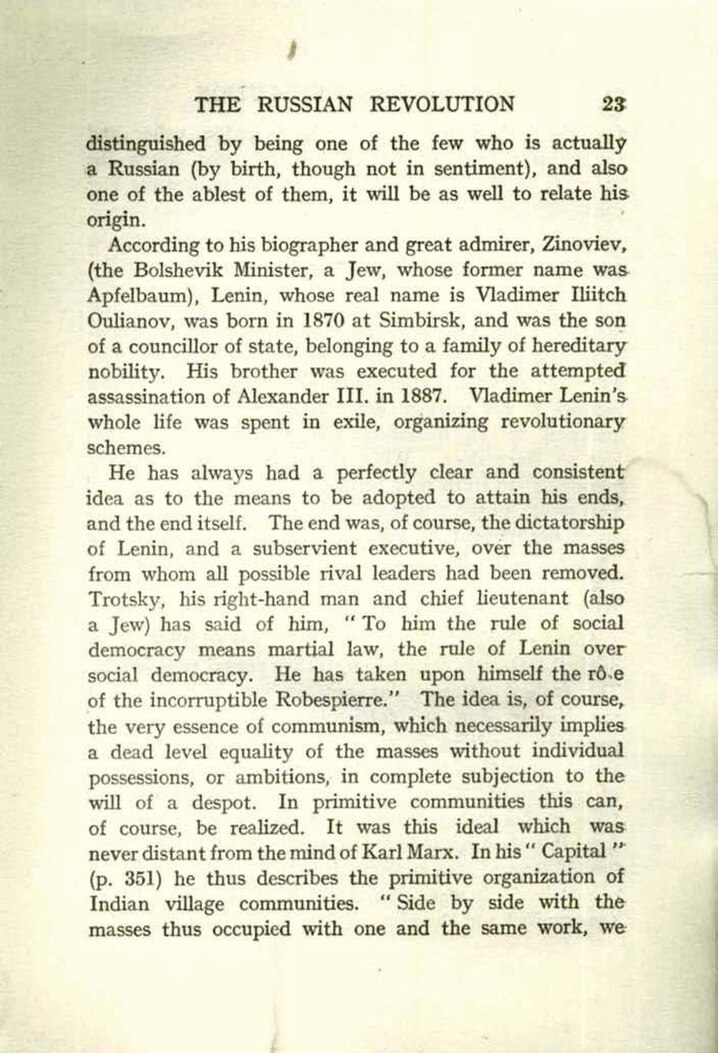distinguished by being one of the few who is actually a Russian (by birth, though not in sentiment), and also one of the ablest of them, it will be as well to relate his origin.
According to his biographer and great admirer, Zinoviev, (the Bolshevik Minister, a Jew, whose former name was Apfelbaum), Lenin, whose real name is Vladimer Iliitch Oulianov, was born in 1870 at Simbirsk, and was the son of a councillor of state, belonging to a family of hereditary nobility. His brother was executed for the attempted assassination of Alexander III. in 1887. Vladimer Lenin's whole life was spent in exile, organizing revolutionary schemes.
He has always had a perfectly clear and consistent idea as to the means to be adopted to attain his ends, and the end itself. The end was, of course, the dictatorship of Lenin, and a subservient executive, over the masses from whom all possible rival leaders had been removed. Trotsky, his right-hand man and chief lieutenant (also a Jew) has said of him, "To him the rule of social democracy means martial law, the rule of Lenin over social democracy. He has taken upon himself the rôle of the incorruptible Robespierre." The idea is, of course, the very essence of communism, which necessarily implies a dead level equality of the masses without individual possessions, or ambitions, in complete subjection to the will of a despot. In primitive communities this can, of course, be realized. It was this ideal which was never distant from the mind of Karl Marx. In his "Capital" (p. 351) he thus describes the primitive organization of Indian village communities. "Side by side with the masses thus occupied with one and the same work, we
